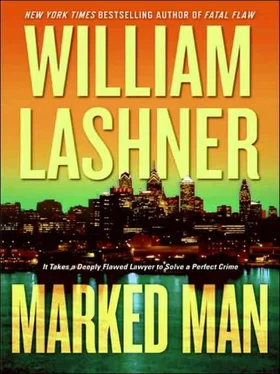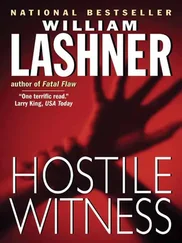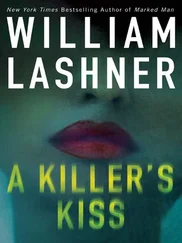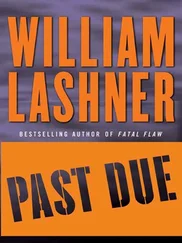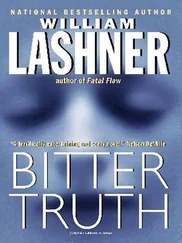“Because a great liar doesn’t make up his lies out of thin air. In every effective lie will be a kernel of truth, and that’s what we’re looking for. The kernel of truth about what that bastard did to your sister.”
The man from thesquawk box was waiting for us at the front entrance of the house. He was short and thin, with a shock of very black, very false hair perched uneasily atop his wrinkled skull. He wore sandals and a scowl, white pants, a loose flowered shirt. He had to be at least ninety, maybe more. The oldest Filipino houseboy in the world.
“You Victor Carl?” said the man, clearly not impressed with what he was seeing.
“That’s me.”
“And your lady friend?”
“A friend.”
“I think Mr. Purcell happier to see lady friend than you. I know I am. Leave car in front and come with me.”
The entranceway of the house looked like something from an upscale boutique, or a very upscale bordello, a circular portico floored with marble covered by a maroon awning. It would have been impressive if not for the thick clumps of weeds growing between the marble slabs.
We were led through the double wooden doors, into an empty central hallway, and then to a wide parlor that was bare of all carpeting, with only a single white couch sitting before a fireplace. A wooden crate served as a coffee table. The walls were dark, with patches of unfaded paint where paintings had once hung. Lined along the edge of the floor were photographs in silver frames, photographs of lovely tan men with gleaming teeth and women with deep cleavage.
“Where is everything?” I said.
“Out for cleaning,” said the man.
From another room we heard an affected voice call out, “Lou, is that Anglethorp?”
“Not Anglethorp,” said Lou with a barking laugh. “Victor Carl.”
“What the hell?”
We heard a chair scrape and something fall to the floor before a man appeared, a young man in cream-colored slacks. He was thin and blond, very tan, and his face was weirdly devoid of personality.
“You’re Victor Carl?” said the man in the blazer, drawing out my name as if I were a great disappointment.
“That’s right.”
“I thought you’d be different. Bigger, maybe. And with a hat. How’d you get here?”
“We flew in from the coast, and, boy, are our arms-”
“I told you he come, Mr. Winters,” said Lou. “You owe Lou another hundred. Pretty soon I own your car.”
“Try collecting, you little lemur.” Reggie Winters turned to Monica with a dispassionate gaze. “And you are?”
“My associate,” I said.
“The Derringer of Derringer and Carl?”
“Close enough.”
“The whole firm has come to us for a visit. How pleasant. But you’ve come at a bad time. Where are you both staying?”
“We got a couple rooms by the airport. Why?”
“Mr. Purcell is in the middle of something right now and can’t be disturbed,” said Reggie. “I’m sure you understand. Why don’t you give us the number of your hotel, and he’ll get in touch with you when he can.”
“Are you serious?” I said. “Lou, is he serious?”
“Oh, Mr. Winters, he very serious young man. Always. No kid in him.”
Reggie Winters sniffed. “You just can’t barge in here like a herd of-”
“But I already have, haven’t I, Reg? Where’s the boss man, Lou? He out back?”
“By the pool,” said Lou. “I show you.”
Reggie Winters glared for a moment and then stalked past us, to a stairwell at the end of the room. Lou shook his head and led us in the same direction.
Down the dark set of steps, across a large room emptied of furniture except for a dying tree in a pot, dried leaves scattered across the wooden floor. Past a billiards room with mahogany walls, Lou turned right and led us outside, through a passageway covered by a wooden pergola overgrown with roses and lilacs. Just beyond was a large swimming pool, its water murky and green. Weeds grew through cracks in the stone surrounding the pool, a few deck chairs, straps hanging loose, sat forlornly by the edge of the water, a hot tub was set off to the side, its water becalmed. And in the distance, far below, the desolate expanse of the Pacific Ocean.
“Ahh, you don’t have a week to read it,” came a growly mumble from off to the left. “I need to know tomorrow.”
A small man in a terry cloth robe was sitting with a woman at a wrought-iron table beneath a green umbrella. The man sat with his back to us, talking into a headset. A wreath of smoke rose around him. The woman, who was quite pretty, was taking notes and holding a phone. The presence of Reggie Winters standing at the edge of the table identified the man exactly.
“Ahh, trust me. Best script I read in years,” the man said. “Brilliant. And I gave it to you first, kid. Remember that at Oscar time.”
He prefaced almost every sentence with a guttural stutter, as if his voice were gearing up to release a flock of words into the sky, and when they finally did come out, they came out fast and skittish.
“Ahh, but I need to know ASAP. Come on over tomorrow night, we’re screening my latest. Big party. Tell me what you think then… That’s right… Okay. Ahh, do me a favor and fuck that new wife of yours for me.” Laughter. “You know I am. Ahh, we’re going to make a flick, baby… Right. Tomorrow.”
The man waved his hand, the woman pressed a button. The man stuck a thick cigar in his mouth and said to the woman, “He’s going to screw me, I know it. Ahh, get in touch with George and tell him I have a script for him.”
“We have a problem,” said Reggie.
The man took off his headset and turned to Reggie. “Ahh, can’t you deal with it, kid? I don’t have time right now. What kind of problem?”
“I think he means me,” I said.
The man in terry cloth swiveled in his chair and fixed me with a startled expression. He wore big round glasses that magnified his blue eyes, his hair was black and slicked back, a gold medallion hung on his bare chest. The skin of his face was dark with sun and as shiny and taut as plastic wrap stretched across a bowl of fruit.
“Who the hell are you?” he said.
“Victor Carl,” I said.
He took the cigar out of his teeth and looked me over. “Lena,” he said, “go on up and get ready for Anglethorp.”
The woman at the table stood, smiled at us before heading into the house.
When she was gone, Purcell said to me, “Ahh, what the hell took you so long?”
“You weren’t so easy to find.”
“Easy enough, apparently, for a Philly kid. Didn’t I tell you, Reggie? There’s nothing a Philly kid can’t do so long as you get him out of Philly.”
“You told him, Mr. Purcell,” said Lou. “And now he owe me hundred dollar.”
“Pay up, kid. That’s the way we do it around here. We always pay our debts.”
“I’ll pay, all right,” said Reggie.
“Next it be your car,” said Lou.
Purcell’s eyes latched onto Monica and gave her the up and down and up again. “Who’s the dish?”
“Her name’s Monica,” I said. “Monica Adair.”
“Adair, huh?” I thought the name would land like a punch in the solar plexus, but it fazed him not at all. “Cousin?” he said.
“Sister,” she said.
“I didn’t know she had a sister.”
“I was born after Chantal disappeared.”
“Interesting. But it looks like you made out okay. Ahh, more than okay. What do you do, Monica Adair?”
“I work in a law office.”
“What a waste. You ever make a movie?”
“No.”
“You ought to test. You got a look. Healthy. Like Connelly before she went anorexic. The teeth, we can fix. Did you two bring your swim trunks?”
Читать дальше
